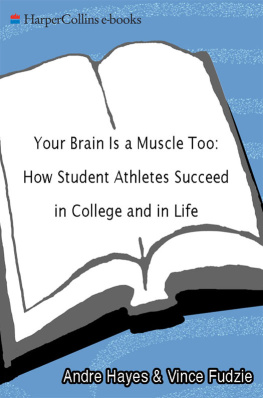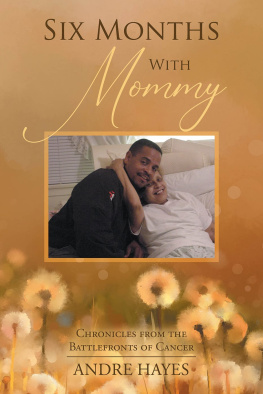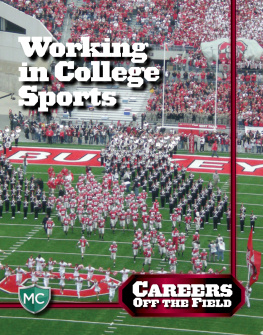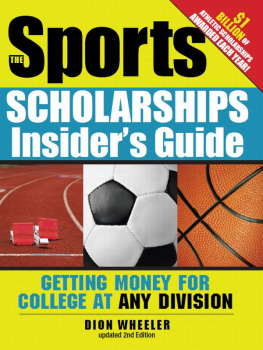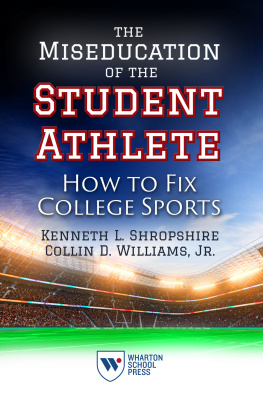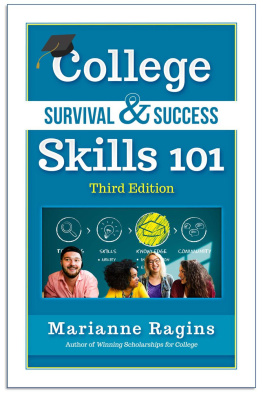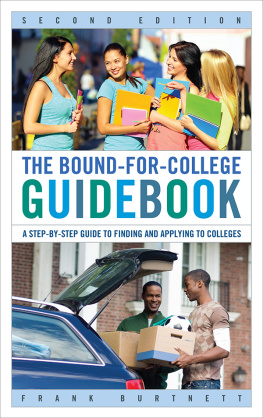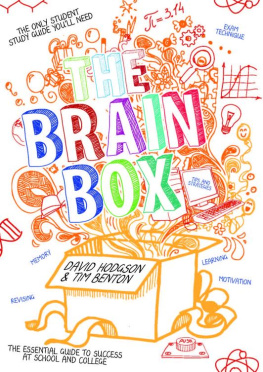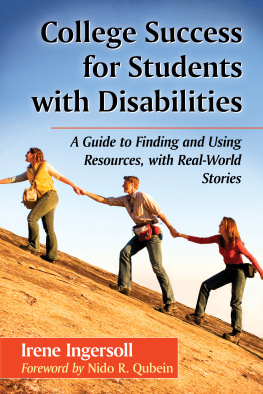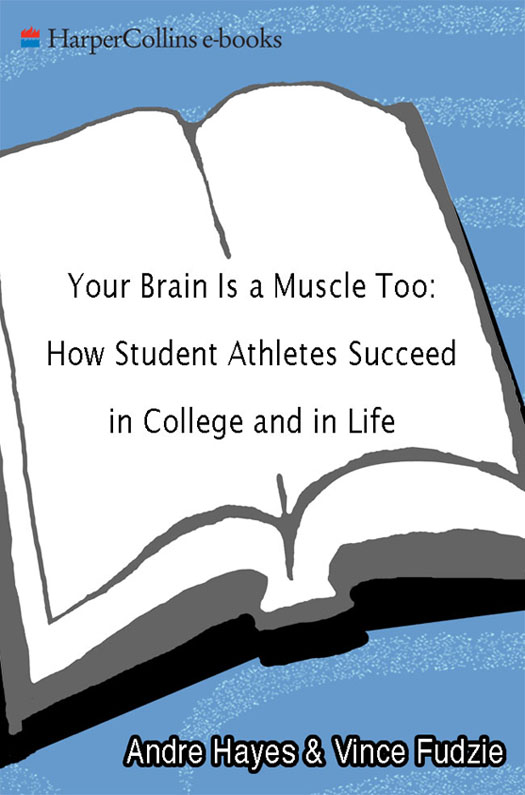Our Creator Above
To the youth of this world,
in the hopes that they
might have a brighter future
as they are our future.
Joan Johnson
Richard Lapchick
Gladys Hayes
Robert Sellers
Ken Shropshire
Monique Ware
Mark Jones
Livia Hansbro
Art Tiel
Fred Whitfield
Erica Lewis
Danielle Williams
Patricia Fudzie
Candice Fudzie
Paula McGee
Tracey Revis
Brenda Taylor
Tracy Allen
Denise McFarland
Guillermo Rubio
Wil Jacobs
Falita Knight
Norwaine Reed
Travor Hill
Akkida McDowell
Estina Thompson
Daniel Jahn
The folks at HarperCollins:
Charles Harris, Sarah Wharton, Tara Brown, Richard Rhorer, and the entire staff of Amistad for believing in our vision.
And anyone else who assisted, prayed, wished, or pushed for the successful completion of this project, which has been long overdue. WAY TO LOOK OUT.
In everything set them an example by doing what is good. In your teaching show integrity, seriousness and soundness of speech that cannot be condemned, so that those who oppose you may be ashamed because they have nothing bad to say about us.
Titus 2:78 NIV
CONTENTS
by Richard E. Lapchick
by Dr. T. Garrott Benjamin, Jr.
featuring John Chaney, Don James, and George Raveling
WAKE UP!
Opportunity Awareness
DECISIONS, DECISIONS...
Do You Really Know the School for You?
PREGAME WARM-UPS:
Before You Place Your Big Feet on Campus
IN TRANSITION:
How Will I Fit In?
ROAD WORK:
A Manageable Approach to Academic Stardom
SMARTER, NOT HARDER:
Study Skills
WORKING THE CLOCK:
The Art of Getting Things Done
POLITICS AND PLAYING TIME:
Structured Diplomacy
MONEY MATTERS!
Making Ends Meet Without Jeopardizing Your Integrity
THE ART OF NETWORKING:
Not What You Know, but Who You Know
HE SAID, SHE SAID:
The College Coed and You
ALMOST ADDICTED:
Substance Abuse
YOU AND SCOOP:
Media Relations by Art Tiel
by Warde Manuel
by Richard E. Lapchick, Director of the Center for the Study of Sports in Society, Northeastern University, Boston, Massachusetts
Y our Brain Is a Muscle Too is long overdue and will be a guide for student athletes to better move through the maze of all the pressures associated with athletics, of all the illusions surrounding athletics, and the realities of athletics in America.
For those of you who are student athletes, Vince and Andre have made a major contribution to enhance your possibilities for success in the future. I know Vince and Andre have made this a passion of love to help the next generation avoid some of the pitfalls that have trapped so many of the current generation of student athletes.
The book focuses on African-American male student athletes, as those who are most heavily recruited to play football and basketball in the country. Among African-American males and females and white males and females, African-American males have the lowest graduation rate. The purpose of the book seems clear. The authors present a sequence of events from high school through the college years that are realistic, in the language of young people in the twenty-first century, and convey a simple message. If you are more aware of where you are going, you will get there more successfully.
The topics covered in the book as well as the contributors to the book are all-inclusive. The book is a must read for both student athletes and their parents. There are insights from coaches of the highest caliber. There are realistic methods given to help high school student athletes realize which factors should go into their decision on which college to choose. They also help prepare high school student athletes for what will be required to be eligible in college, including all the new academic standards that have been passed by the NCAA. It raises the all-important question of what is going to happen to African-American student athletes who suddenly find themselves on a college campus that is overwhelmingly White, both in the student body and the faculty, and in the surrounding area of the campus.
The book will help student athletes and give insights to their parents on how they can support them when they are in college, balancing academics and athletics. It provides study skills and time-management plans. Your Brain Is a Muscle Too shows ways to talk to coaches and academic officials that will express how you feel yet not alienate those people, so that they will become your supporters. Many student athletes arrive on our campuses without the possibility of financial support from home. Yet, according to NCAA rules, they are not able to work during the academic year. Fudzie and Hayes provide realistic approaches to managing your money while you are in college so that you are not tempted to compromise your integrity and the integrity of the entire athletic program.
The book also presents, in graphic detail, the sexual issues on our campuses today, from sexually transmitted diseases to the overwhelming issue of gender violence. Athletes coming to our campuses should know that there is a major stereotype out there and that athletes, particularly African-American athletes, are more inclined to be gender violent. This is believed by White coeds, White policemen, and the White media. There is no study that has ever been published that shows this to be the case. In fact, the data compiled by Northeastern Universitys Center for the Study of Sports in Society show exactly the opposite. Yet because of those stereotypes, the chapters on relationships with college coeds on your new campus is critical information. It also talks in detail, and in depth, about substance abuse and how it can be another trap to attaining your goals.
The book discusses dealing with the media, a media that is overwhelmingly White. With 1,600 daily newspapers in America, as of this writing there are only two African-American sports editors in major media markets and only eleven African-American columnists; 90 percent of the 1,600 daily newspapers in America dont have a single African-American sports writer. So you have to be prepared to work with a group of reporters during your college careers who may not understand you or your culture. The media relations chapter will be critical in helping you deal with this.
Finally, if you make it far enough that you are being considered as a professional athlete, the chapter on how to handle or avoid agents will be critical to getting the right agent. You could lose your eligibility because of an illegal act by an agent while you are in school. This is going to be very important for those who reach that highest level in the later years of their college careers.
Now that you have this incredible resource in Your Brain Is a Muscle Too, I wish you all the best in your remaining career in high school, future and potential careers in college as a student athlete, and the pros, if you should make it.
To the parents, I hope you can enjoy your childs academic and athletic achievements and encourage them in both areas. They are gifted people in a society that values athletics more than academics. Its up to all of you to make sure that your child maintains the balance between any dreams of an athletic career and the reality of getting a sound academic base so they can be prepared to have a successful life, be it in sports or not. Your Brain Is a Muscle Too

